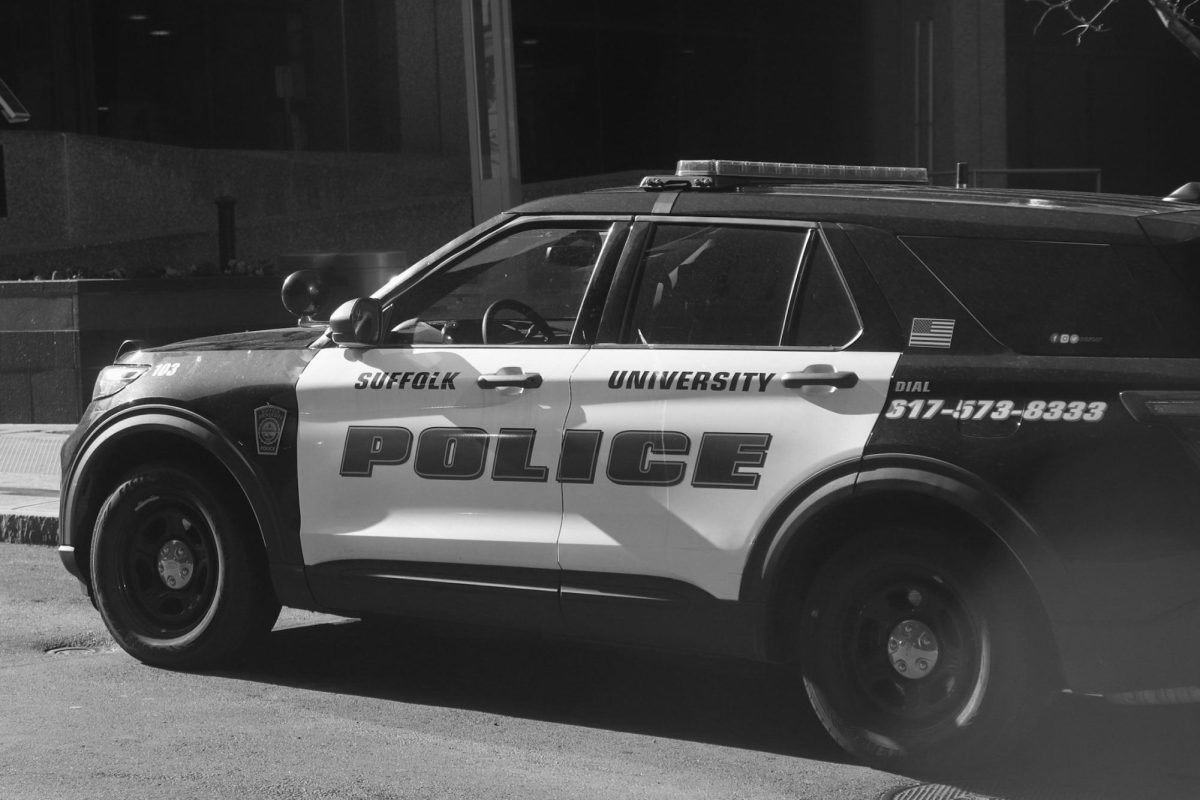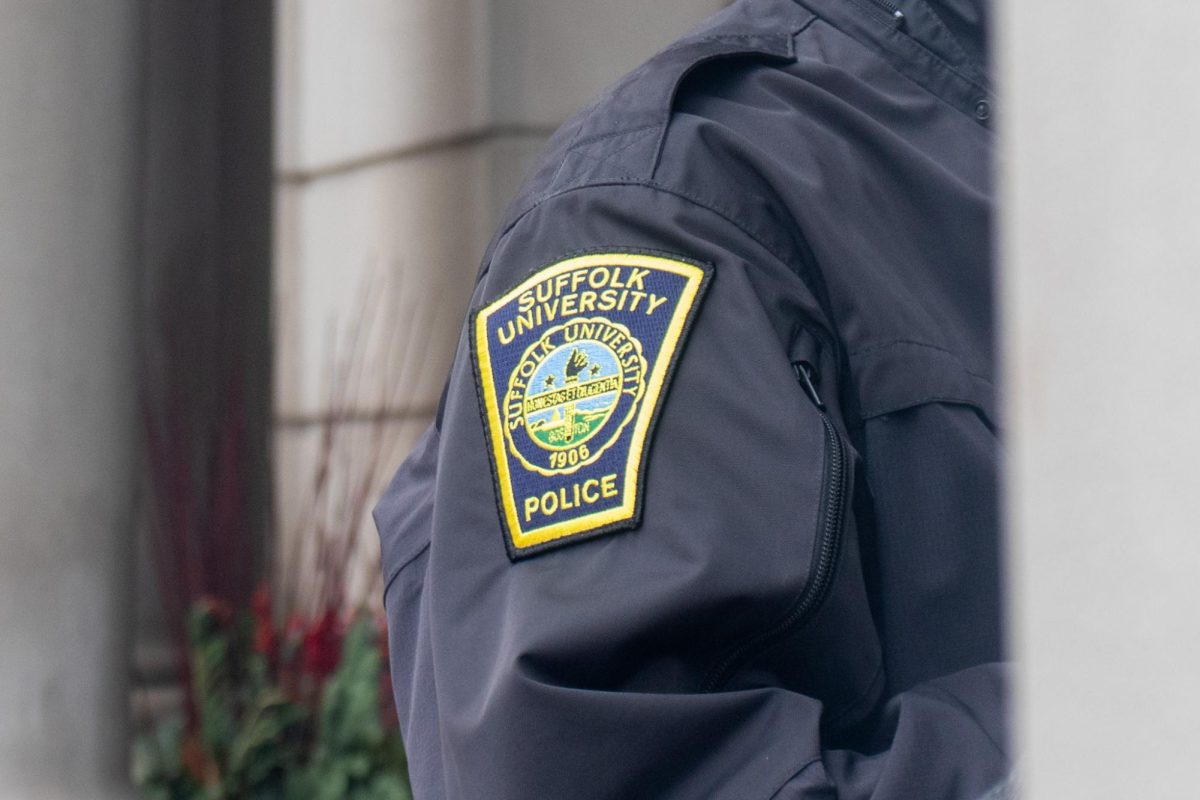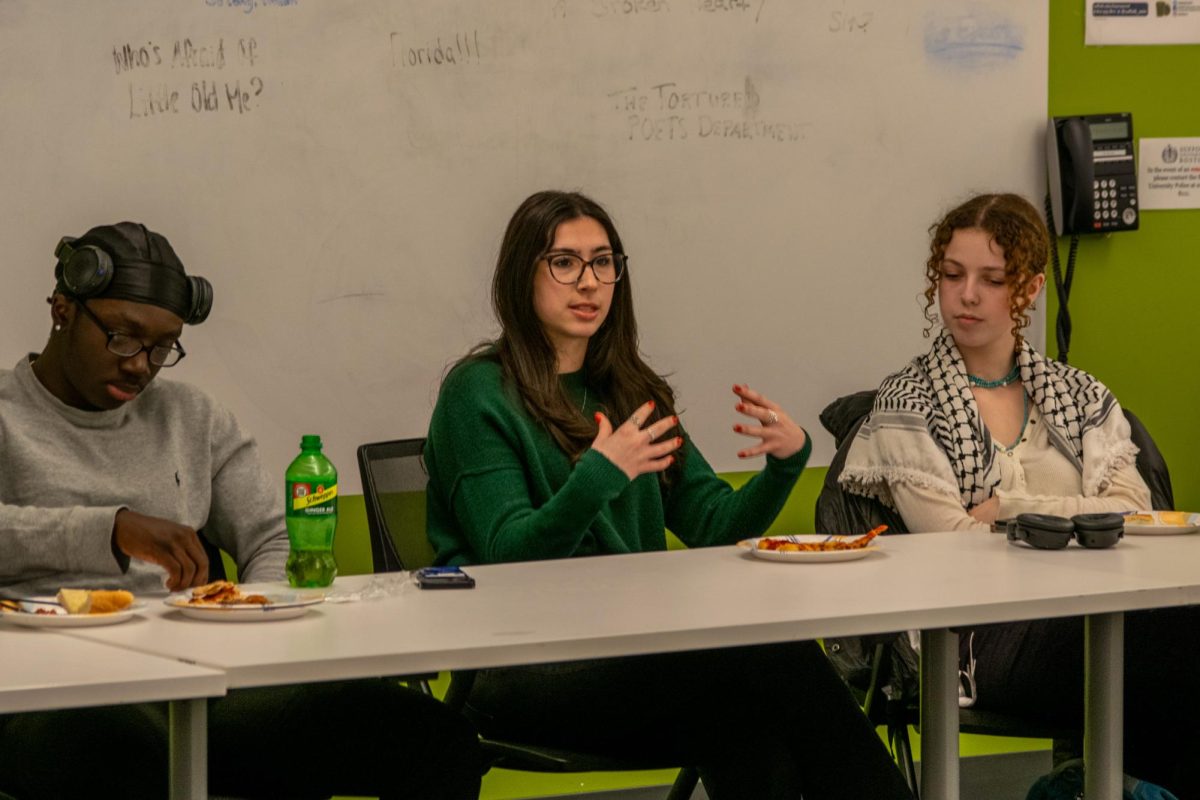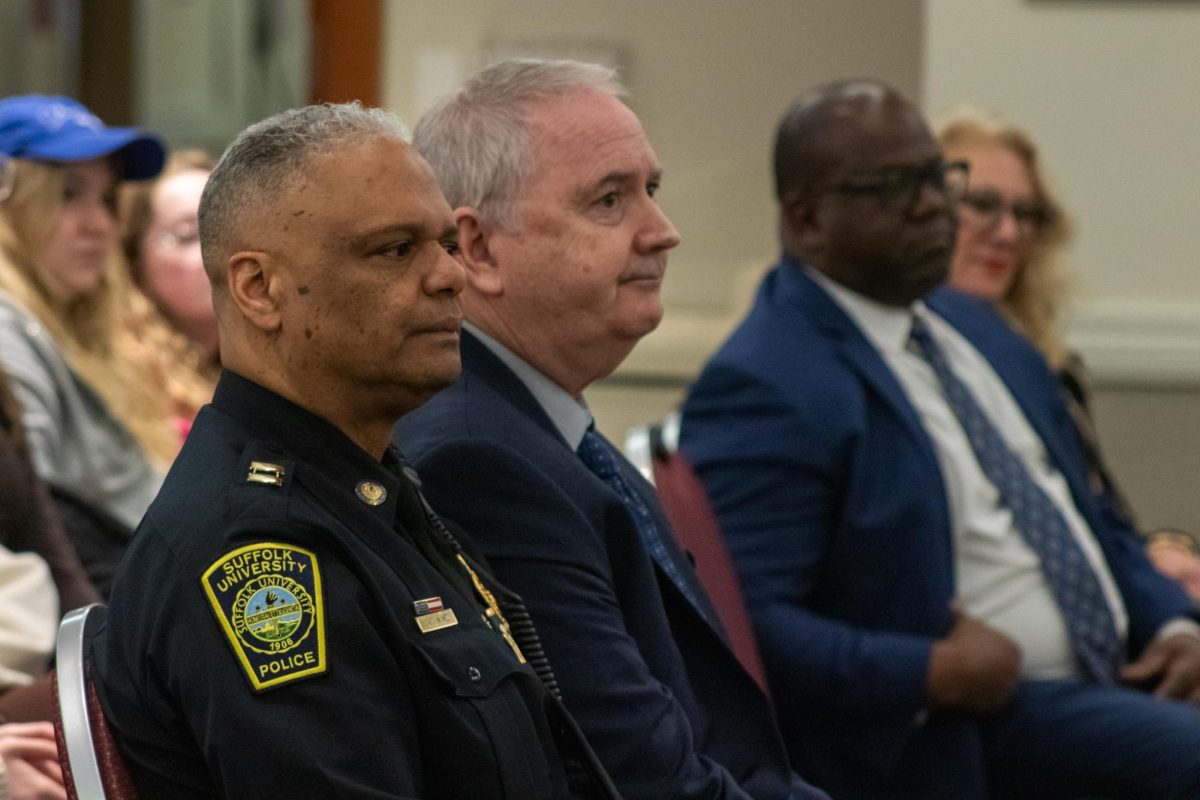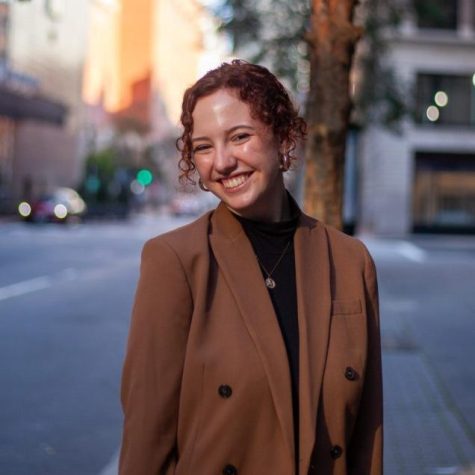For Suffolk University sophomore Patrick Walsh, the April 24 email from Suffolk President Marisa Kelly announcing the Board of Trustees decision to authorize the arming of the Suffolk Police Department came amid a normal conversation between colleagues.
An office assistant for the Political Science and Legal Studies Department, Walsh listened to the gasps of his peers as they read the announcement that detailed the Board’s decision and steps to forming an implementation plan. Some were silent as they began to grapple with the new future of the university. Others yelled across the hall about the decision.
But they all felt one thing: Outrage.
“This decision is going to make life harder for everyone on campus,” said Walsh. The debate to arm SUPD came to a head in 2019 before the Board’s 2020 vote was permanently delayed due to the coronavirus pandemic.
The Board voted to authorize the arming of SUPD and the development of an implementation plan April 19, though it was not officially announced to community members until April 24.
“Following that vote, it was very important for the president to reflect on next steps that will be priorities in the implementation of this decision, and that took a few days,” said Greg Gatlin, vice president of communications at Suffolk.
The decision to arm came as a shock to many — though not all felt disappointment.
“I was surprised to find that SUPD wasn’t armed. It’s a weird feeling to know I naively felt safe by the assumption they were armed. Now knowing they will be, I will regain the feeling of safety I once had downtown” said junior Pamela Giannaros. “It’s really hard to find common ground in today’s political [and] social climate but I do think it is necessary that we take all steps necessary to keep students and faculty safe in such an unpredictable world.”
According to the university, the earliest that SUPD would be armed is 2025. In a recent survey sent to community members by the university, a majority of students and Suffolk employees opposed the arming. According to the survey, 52.3% of employees and 62.3% of students said they did not believe that SUPD should carry firearms.
For many in the Suffolk community, the decision to arm — going against the data from the survey — felt like a disservice to the community and the future of the institution.
“[Shared governance] got lost in this process, because they made it appear as if they were taking into account our opinions by doing a poll and surveys to both the students and the staff and faculty. But yet, their decision-making process is completely opaque,” said Melanie Berkmen, chair of the biochemistry, chemistry, environment and physics department. “We have no idea what led to their decision to arm back the SUPD. And they don’t bother to explain what it is.”
Since Kelly and Chair of the Board Robert Lamb addressed the Student Government Association about the decision to undertake the proposal to arm SUPD Feb. 15, the university hosted an open forum March 26 and sent out a survey and FAQ form to students and Suffolk employees. Administration elected to focus on listening to student concerns during the March 26 forum and did not answer questions presented by students.
Suffolk’s SGA, Caribbean Student Network and Black Student Union organized a student forum March 19, where students had the opportunity to learn about the proposal from SUPD officers and ask questions.
For many students and faculty, the communication between the community and administration largely felt disconnected and disingenuous.
“Suffolk could have said nothing and it would have had the same effect as the communication they’ve had with the community,” said Walsh.
The Faculty Senate, chaired by marketing Professor Ereni Markos, said the decision to arm came abruptly. Before the Board’s vote, the Senate urged the university that “additional information should be gathered, and considered, via surveys and town hall meetings with the Suffolk community.”
“The suddenness of the decision and the timing of the announcement have diminished trust and undermined the practice of shared governance,” said the Faculty Senate in a statement to The Suffolk Journal.
Student Government President Clinton Oreofe learned about the decision in a meeting with Kelly, CSN President Aranxta Melendez and BSU President Kayci Resende-Abbott minutes before the email was sent out. While disappointed, Oreofe is hopeful that the implementation plan will consider and include student voices.
“I want us to be there every step of the way,” said Oreofe. “We did our best. And this [student safety and comfortability on campus] is a fight that we can’t stop.”
Following the decision to arm, the future of Suffolk seems to be haphazard and anxiety-inducing for students and faculty across campus, said sophomore Moses Tasik.
“I think the main thing is that I think there’s going to be a lot of anxiety amongst the students within Suffolk campus,” they said. “I think just the presence of a gun on campus is already alarming enough.”
In the April 24 email, Kelly said the university will be working to “reimagine” campus safety within the confines of residence halls.
“We do not want armed officers on our residential floors except in certain very specific and dangerous situations. For students who live in University-sponsored housing, those residence halls are your homes, and we must be mindful of how the mere presence of a gun in one’s home, even a gun that is appropriately holstered and secure, would be stressful for many,” said Kelly.
For RAs and students who live on campus and students who live on campus, the new dynamic of firearms adds an additional layer of anxiety for the future of Suffolk dorms.
“Residents are going to live in fear of doing anything wrong, or being in the wrong place at the wrong time, because an officer has the ability to pull a gun on them. Resident assistants are still going to have to deal with the officers firsthand and with the same fear,” said Walsh.
Looking at the implementation process, Kelly said the university will be looking at all best practices, including the addition of mental health professionals into SUPD and examination of current safety procedures.
“While I understand not everyone will agree with this decision, we heard your concerns over the course of the last few months, and we learned of issues that must be addressed,” said Kelly. “As part of this implementation conversation, we will examine all of our policies around campus-wide safety and security, with a goal of becoming a model for how to protect both the physical and emotional safety of our community.”
For many students, this decision is not one being taken lightly.
“I don’t see this being a decision people are going to take lying down. I think the administration will see quite a bit of pushback from the community into the fall and into the inevitable implementation process,” said Alex Harper, a freshman psychology and creative writing major.


